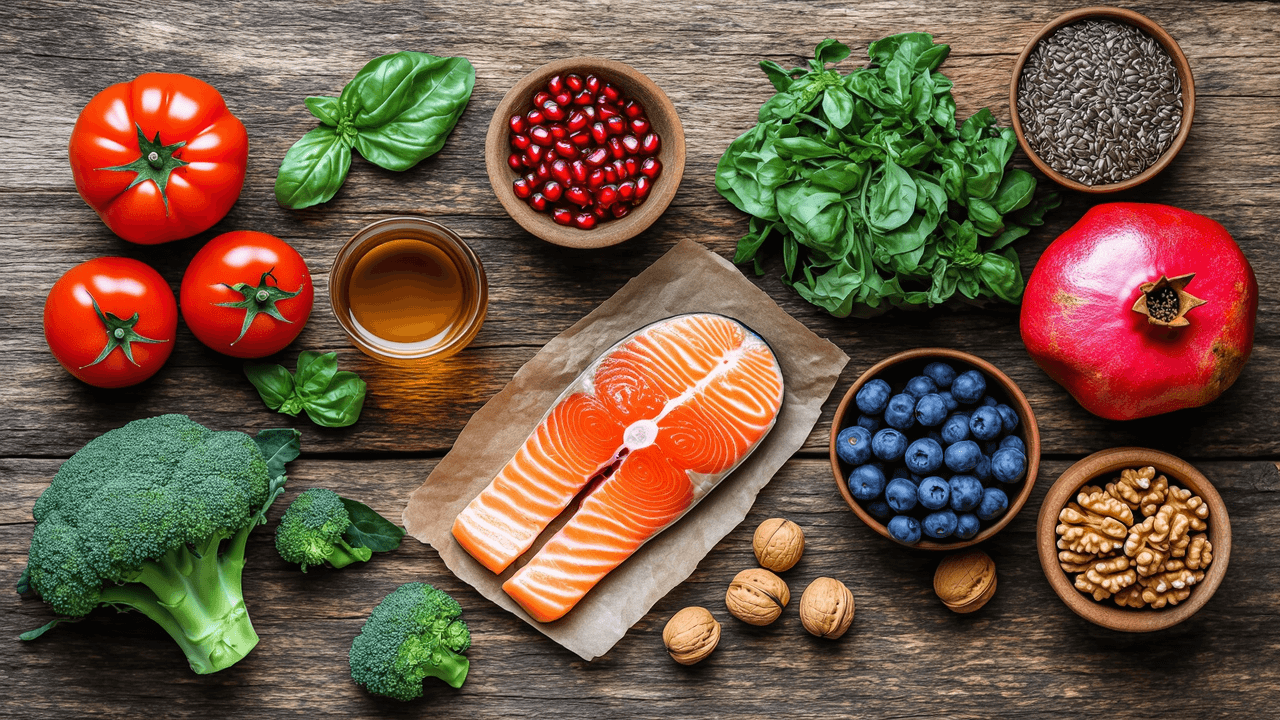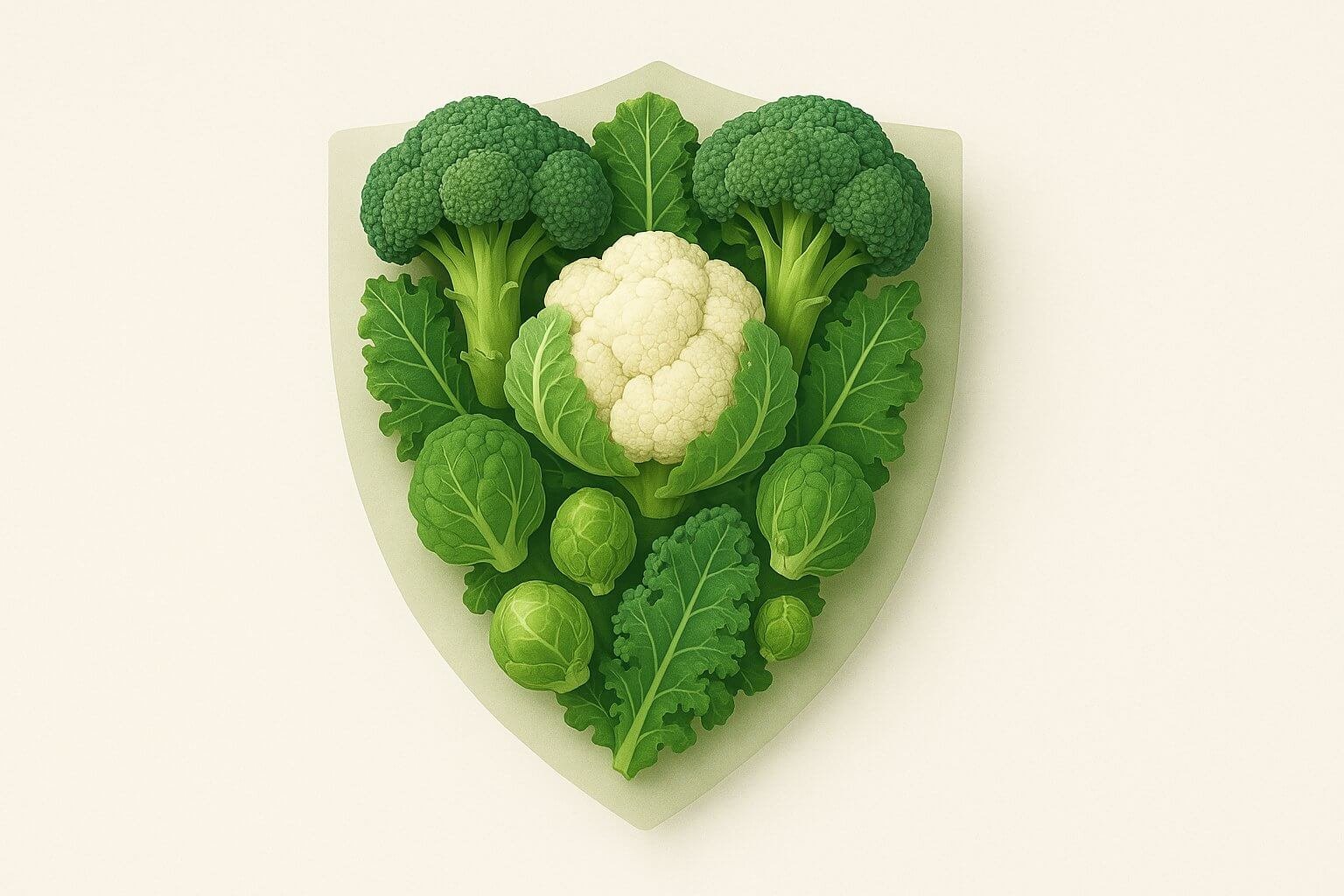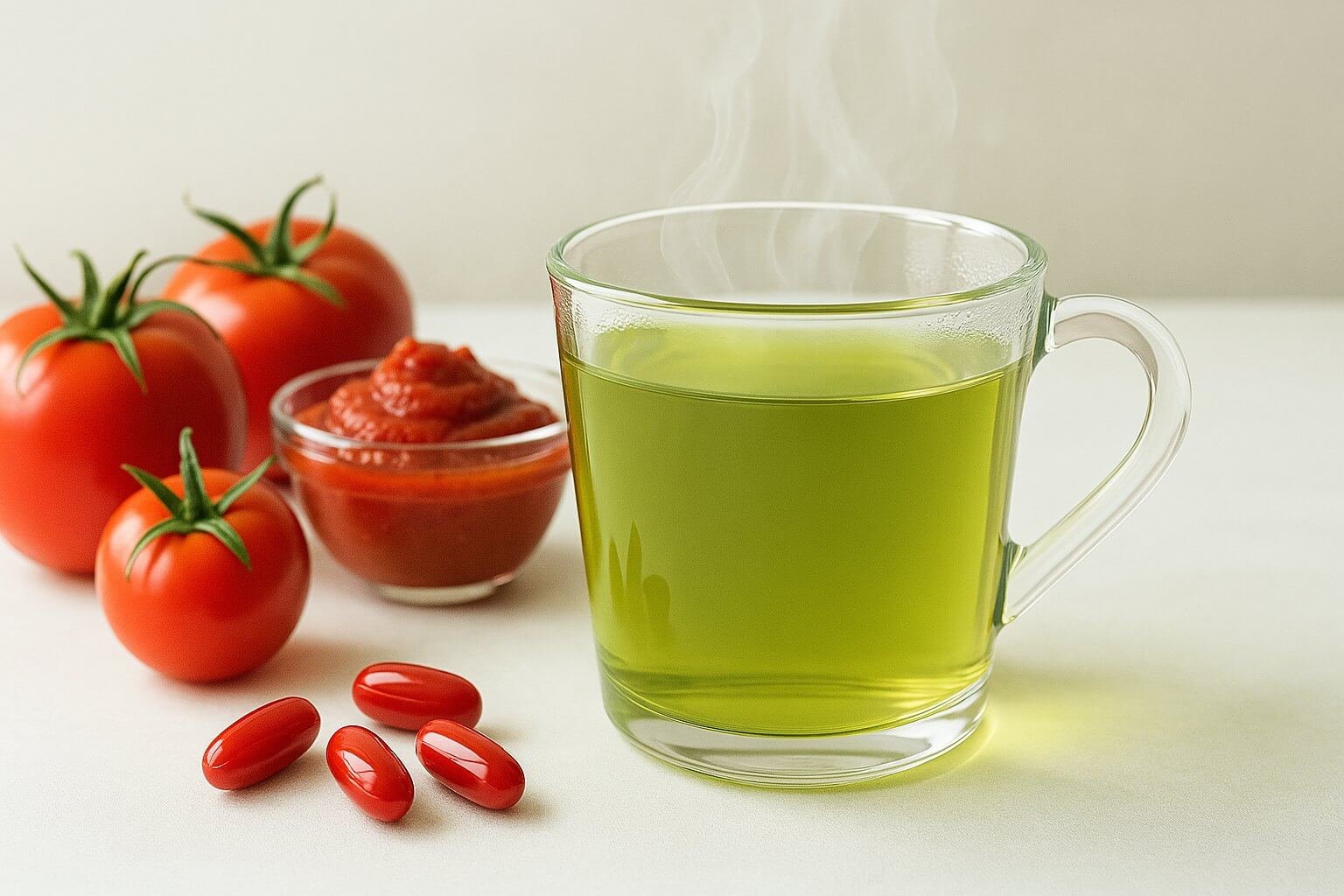Book Appointment Now

Prostate Cancer and Diet: Can Nutrition Help Lower Your Risk?
Introduction
Prostate cancer is one of the most common cancers in men, and while factors like age, genetics, and family history play a major role, research suggests that what you eat can also make a difference. A balanced diet may help reduce inflammation, support immune function, and regulate hormone levels—all of which are important for keeping your prostate healthy.
So, can the right foods actually lower the risk of prostate cancer? And are there certain foods that should be avoided? Let’s break it down in simple terms.
How Diet Affects Prostate Cancer Risk
Food isn’t just fuel—it affects how our bodies function on a cellular level. When it comes to prostate health, diet can:
Reduce inflammation – Chronic inflammation has been linked to cancer development.
Regulate hormones – Some foods may influence testosterone and other hormones that affect prostate cells.
Protect against DNA damage – Antioxidants in food help fight harmful free radicals.
Strengthen the immune system – A strong immune system can help the body fight abnormal cell growth.
Best Foods for Prostate Health
1. Tomatoes (Rich in Lycopene)
Tomatoes are one of the best sources of lycopene, a powerful antioxidant that gives red and pink fruits their color. Studies suggest that lycopene may:
- Lower prostate-specific antigen (PSA) levels, a marker of prostate cancer risk.
- Protect prostate cells from DNA damage.
- Slow the growth of cancerous cells.
You can find the best sources of Lycopene in cooked tomatoes, tomato paste, tomato juice, watermelon, pink grapefruit.
Lycopene is better absorbed when eaten with healthy fats like olive oil or avocado.
2. Cruciferous Vegetables (Broccoli, Kale, Brussels Sprouts)

Broccoli, cauliflower, kale, and Brussels sprouts contain sulforaphane, a compound that has been shown to help:
- Flush out carcinogens from the body.
- Reduce inflammation linked to cancer development.
- Encourage damaged cells to self-destruct before they become cancerous.
How to eat them: Lightly steamed or raw for maximum benefits.
3. Fatty Fish (Rich in Omega-3 Fatty Acids)
mega-3 fatty acids, found in salmon, sardines, mackerel, and flaxseeds, have strong anti-inflammatory properties. Research suggests omega-3s may:
- Help slow the growth of prostate tumors.
- Reduce inflammation in prostate tissue.
- Improve hormonal balance linked to prostate health.
You can find the best sources of Omega-3 in wild-caught salmon, flaxseeds, chia seeds, walnuts.
4. Green Tea (Rich in Antioxidants)

Green tea contains catechins, antioxidants that have been shown to:
- Slow prostate cancer cell growth.
- Reduce oxidative stress that can lead to DNA damage.
- Block the effects of androgens that fuel cancer growth.
3–5 cups per day may provide benefits.
5. Berries and Pomegranates (Packed with Antioxidants)
Blueberries, strawberries, raspberries, and pomegranates are loaded with polyphenols that can:
- Reduce inflammation and cell damage.
- Help prevent cancer cells from spreading.
- Support heart health, which is important for men undergoing treatment.
You can find the best sources in fresh berries and pomegranate juice (unsweetened).
6. Nuts, Seeds, and Legumes (Rich in Zinc and Selenium)
Brazil nuts, pumpkin seeds and lentils contain zinc and selenium, two minerals essential for prostate health.
Selenium has been linked to a lower risk of advanced prostate cancer.
Zinc supports immune function and hormone balance.
You can find the best sources in Brazil nuts (a top source of selenium), pumpkin seeds, chickpeas, lentils.
Foods That May Increase Prostate Cancer Risk

1. Red and Processed Meat
A high intake of red meat (beef, pork, lamb) and processed meats (bacon, sausages, deli meats) has been linked to a higher risk of aggressive prostate cancer.
Why? Cooking meat at high temperatures creates carcinogenic compounds that may damage prostate cells.
2. High-Fat Dairy Products
Full-fat dairy (whole milk, butter, cheese) contains saturated fats, which may increase levels of insulin-like growth factor (IGF-1)—a hormone associated with higher prostate cancer risk.
Better alternatives: Plant-based milk (almond, soy, oat) or low-fat dairy options.
3. Excessive Alcohol
While moderate drinking is generally safe, heavy alcohol consumption has been linked to an increased risk of several cancers, including prostate cancer.
Limit alcohol to: 1–2 drinks per day for men.
4. Sugary and Processed Foods
Diets high in refined sugar, fried foods and ultra-processed snacks can lead to obesity, insulin resistance, and inflammation—all of which may contribute to prostate cancer risk.
The better options are whole foods, fiber-rich grains, fresh fruits.
Beyond Diet: Other Ways to Reduce Prostate Cancer Risk
Eating well is just one piece of the puzzle. Other healthy habits that may help lower prostate cancer risk include:

- Exercise regularly – Physical activity helps regulate hormones and reduce inflammation.
- Maintain a healthy weight – Obesity is linked to more aggressive prostate cancer.
- Manage stress – Chronic stress affects hormone levels and immune function.
- Get screened regularly – PSA tests and digital rectal exams (DRE) can help with early detection.
Conclusion
There’s no magic food that can guarantee protection against prostate cancer, but a diet rich in antioxidants, healthy fats, and plant-based nutrients can support prostate health and reduce risk. By making smart food choices and leading a healthy lifestyle, men can take proactive steps to protect their prostate and overall well-being.
Key Takeaways:
✔ Eat tomatoes, cruciferous vegetables, fatty fish, and nuts for prostate health.
✔ Limit red meat, processed foods, and full-fat dairy.
✔ Drink green tea and pomegranate juice for extra antioxidants.
✔ Stay active and get regular check-ups for early detection.
Source
1. World Cancer Research Fund (WCRF) – Diet and Prostate Cancer
2. American Institute for Cancer Research (AICR)
3. National Cancer Institute (NCI) – Antioxidants and Cancer Prevention
Disclaimer: This article is for informational purposes only and does not constitute medical advice. Although the content has been reviewed in collaboration with a licensed physician, it is not intended to diagnose, treat, cure, or prevent any disease. Always consult with your healthcare provider before making any changes to your diet, lifestyle, or medical treatment.
Author
This article was written in collaboration with Dr. Eugeniu Costenco, MD, a medical doctor with expertise in urology and preventive health.




